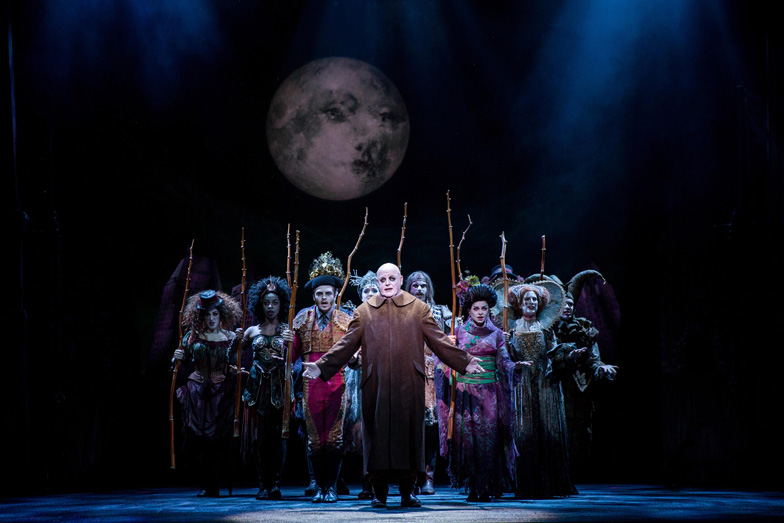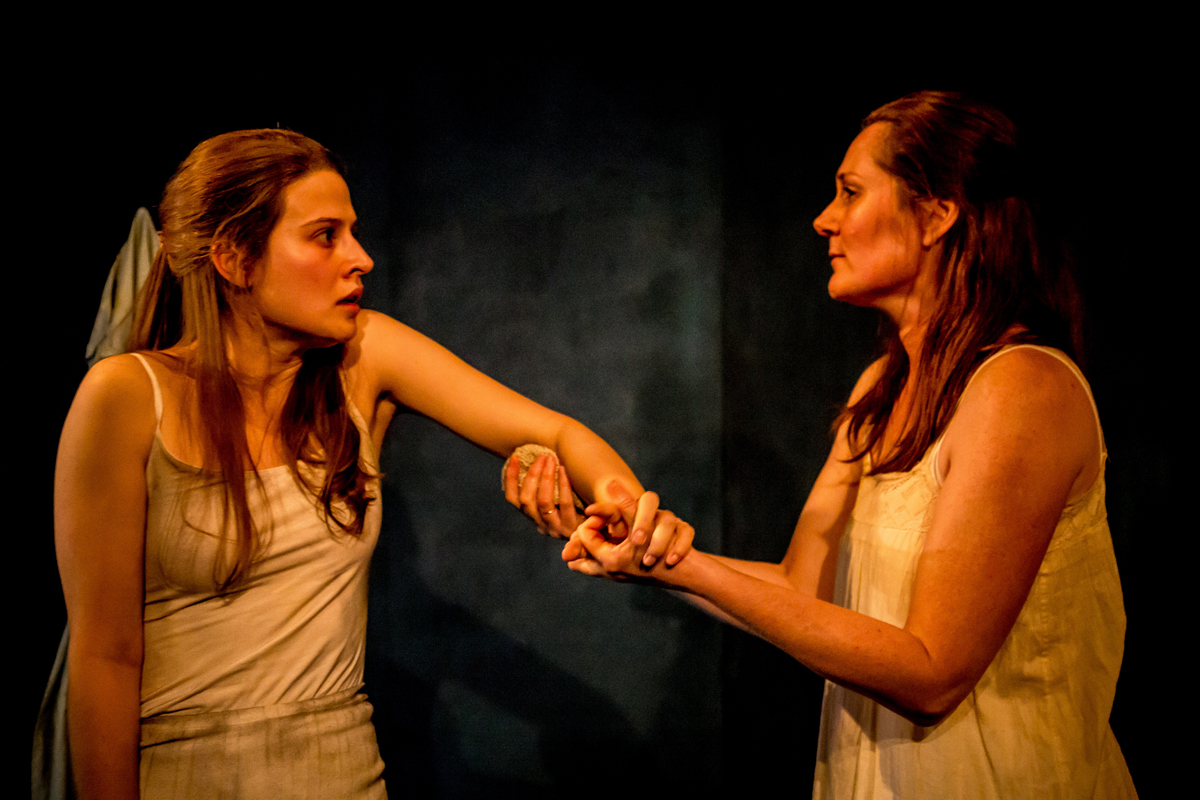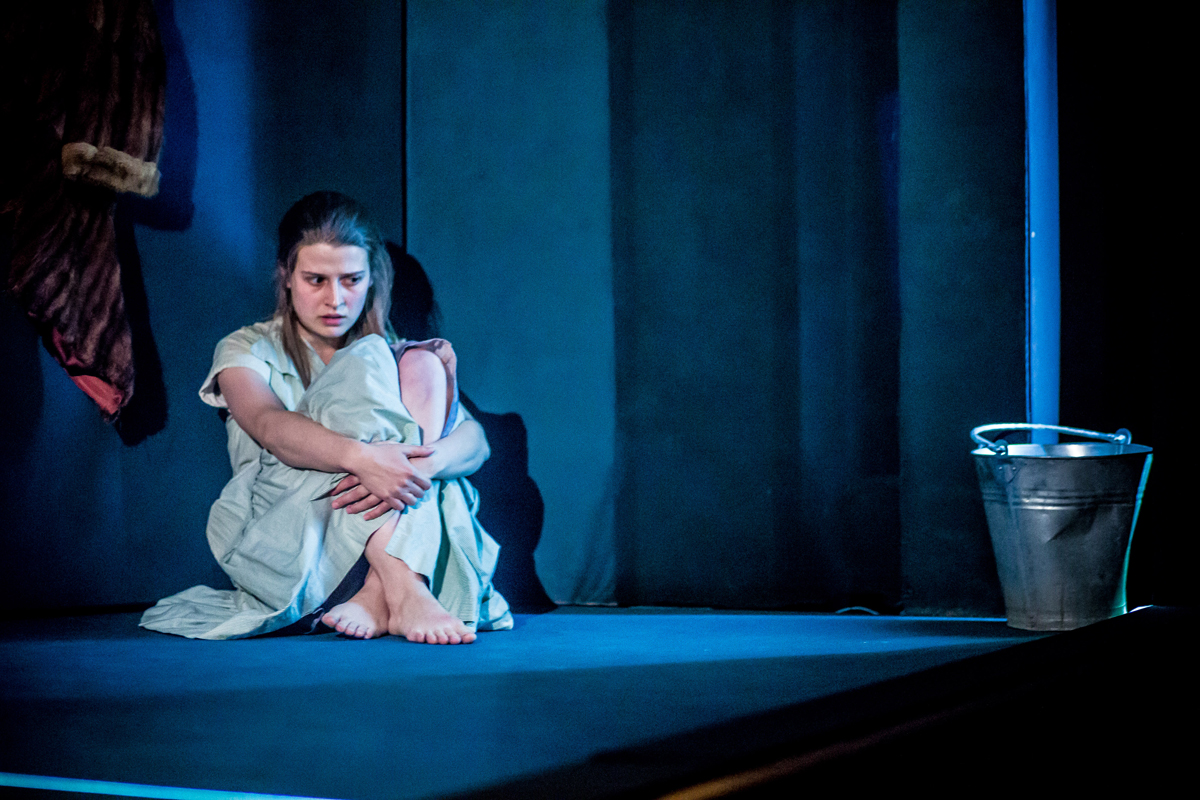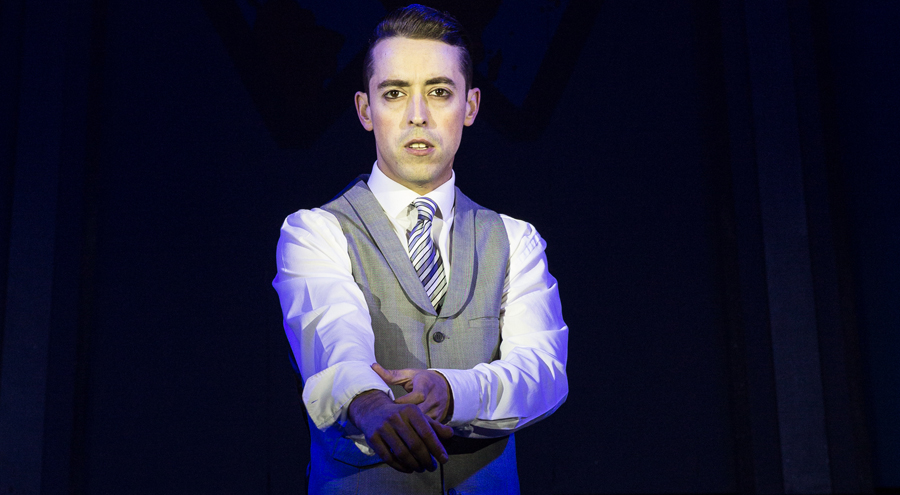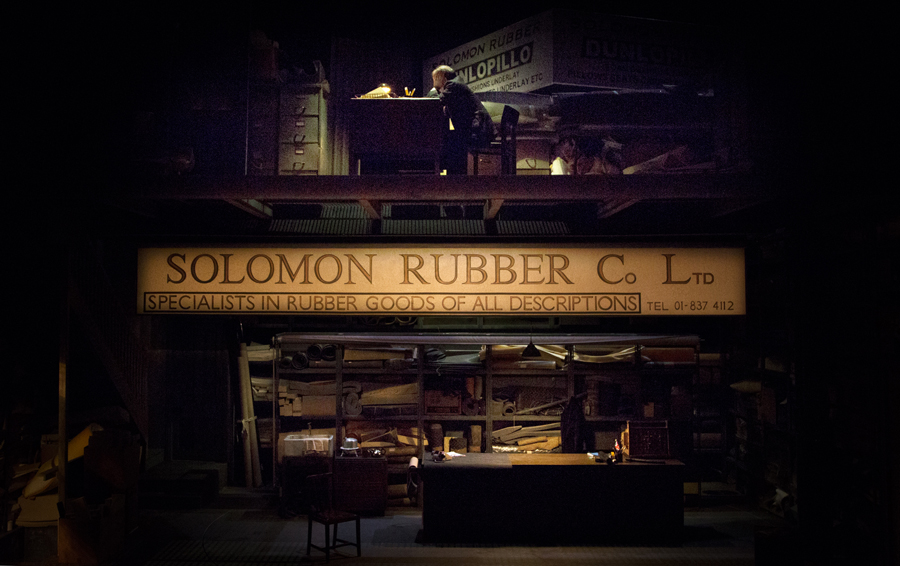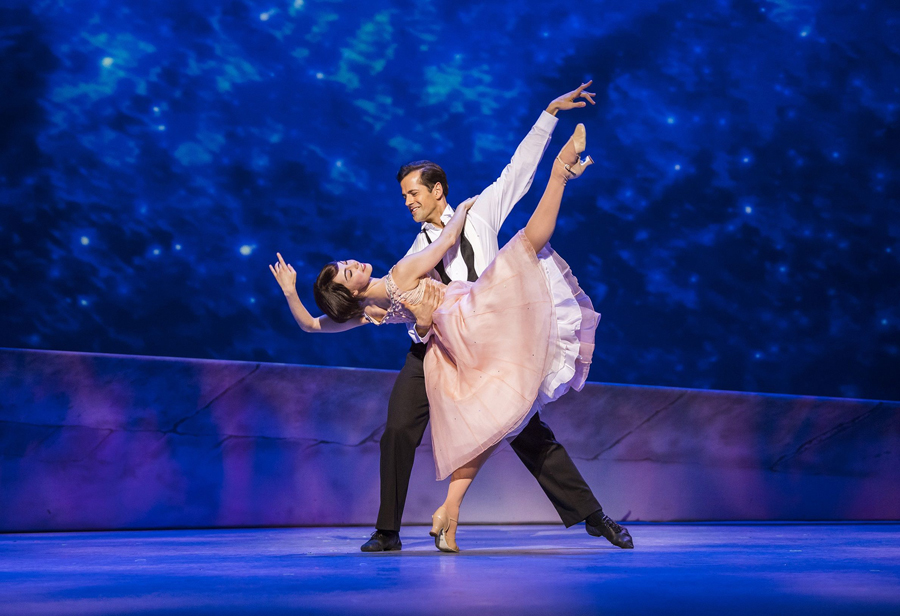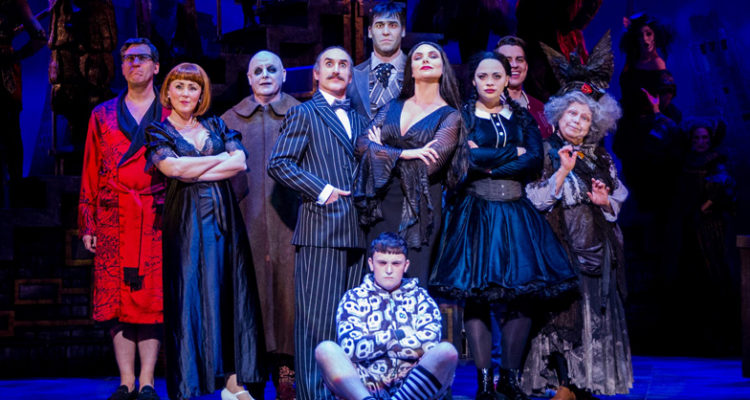 The real-life drama of Jersey Boys – the legendary hit from this terrific all-Jewish creative team – is a world away from this deliciously knowing crowd pleaser. Think a cross between the high-school teenage angst of Grease and the outrageous camp of cult smash hit The Rocky Horror Show. Marshall Brickman and Rick Elice go back to Charles Addams’ much-loved cartoon strip for their characters, rather than previous live incarnations, the TV series and the film. Andrew Lippa’s well-placed musical numbers are a vital part of the show’s weird and wonderful atmosphere, his richly varied music and witty lyrics working nimbly to reveal the kooky characters and move the plot along.
The real-life drama of Jersey Boys – the legendary hit from this terrific all-Jewish creative team – is a world away from this deliciously knowing crowd pleaser. Think a cross between the high-school teenage angst of Grease and the outrageous camp of cult smash hit The Rocky Horror Show. Marshall Brickman and Rick Elice go back to Charles Addams’ much-loved cartoon strip for their characters, rather than previous live incarnations, the TV series and the film. Andrew Lippa’s well-placed musical numbers are a vital part of the show’s weird and wonderful atmosphere, his richly varied music and witty lyrics working nimbly to reveal the kooky characters and move the plot along.
It's not the most labyrinthine of plots (Meet the Parents with a Gothic twist), but it's the fun on the way to a foregone happy conclusion that makes for such a joyful night out to share with packed houses of aficionados happily clapping along to the iconic theme tune even before the show starts proper. Director Matthew White, choreographer Alistair David and orchestrator Richard Beadle work seamlessly to provide fun that somehow manages to be broad and sophisticated at the same time.
What fans want is all-singing, all-dancing incarnations of their favourite dysfunctional family members and that's exactly what they get in Samantha Womack's curvaceous gently-assertive matriarch Morticia and Cameron Blakely's gallant, ardent Gomez: husband, lover and caring dad. Thrillingly-voiced Carrie Hope Fletcher makes for a real flesh-and-blood (honestly no joke intended!) Wednesday, as much a teenager in love as any high-school heroine. Grant McIntyre's loveable masochistic little bro Pugsley, Valda Aviks' scary Grandma and Les Dennis's terrific Uncle Fester, showman and master of ceremonies, complete the living family.
The spectacular coup de theatre here is that at Addams family conferences, the dead outnumber the living. A glamorous motley crew of 10 assorted ancestors, summoned from the family vault to help solve a problem like Wednesday falling for Oliver Ormso's clean-cut, all-American Lucas, range from matador to geisha, female warrior to jester. They make a daft, colourful chorus, singing, dancing or just eavesdropping from the high windows of designer Diego Pitarch's crazy Gothic realisation of the Addams' ancestral pile. And presiding over it all is Dickon Gough's monumental manservant Lurch, a benevolent golem.
Into this singular set-up stumble Wednesday's dinner guests: Lucas with his parents Mal and Alice, perfectly channelling Rocky's Brad and Janet in middle age, he obstinately square-jawed, she spouting delectably trite rhymes (“When I’m depressed, or feeling blessed, a poem will get it off my chest”) – and of course ripe for unbuttoning. The Addams Family – dead or alive – constitute a life-affirming treat.
By Judi Herman
Photos by Matt Martin
The Addams Family tours until Saturday 4 November, stopping at Canterbury (23-27 May), Southend (30 May-3 Jun), Birmingham (6-10 Jun), Bath (13-17 Jun), Cornwall (20-24 Jun), Nottingham (27 Jun-1 Jul), Bradford (4-8 Jul), Southampton (18-29 Jul), Cardiff (1-12 Aug), Dublin (15-26 Aug), Salford (29 Aug-9 Sep), Sheffield (12-16 Sep), Bristol (19-23 Sep), Woking (26-30 Sep), Belfast (3-7 Oct), Glasgow (10-14 Oct), Wolverhampton (17-21 Oct), Milton Keynes (24-28 Oct) and Dartford (31 Oct-4 Nov).
Visit www.theaddamsfamily.co.uk/tour for further details.
Click here to read more theatre reviews.


